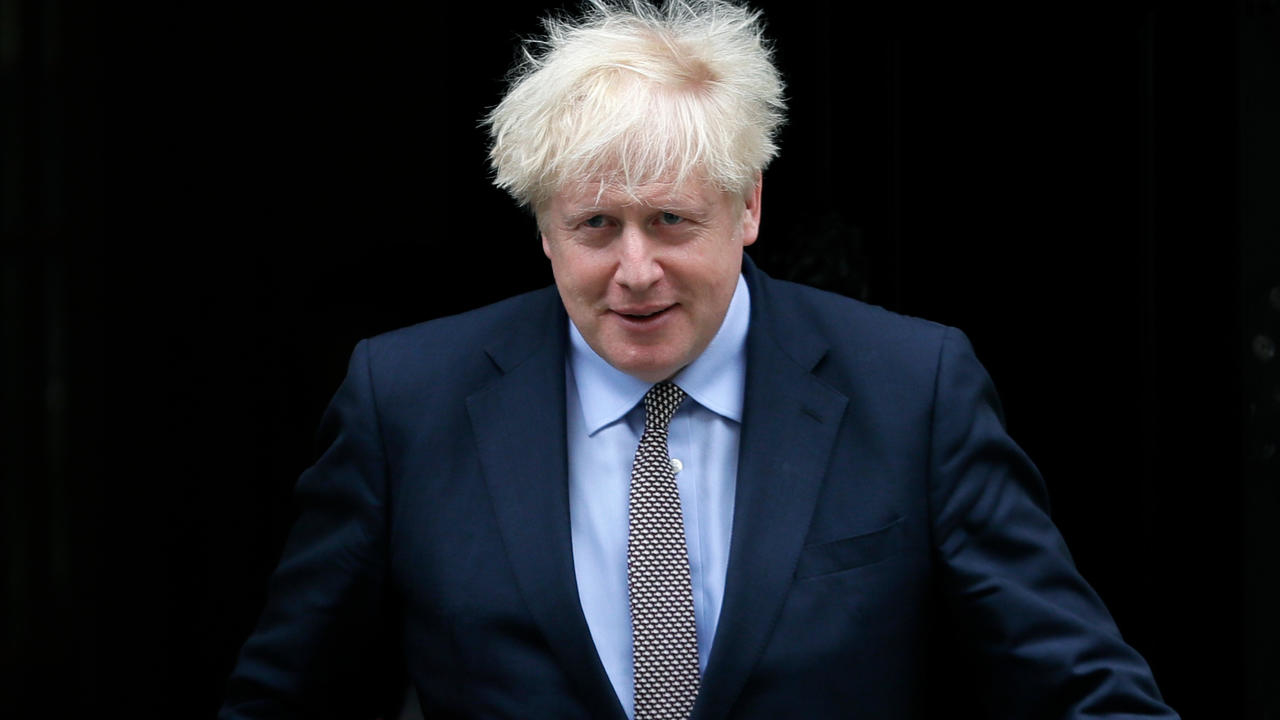How likely are the ‘big four’ European economies to vote to leave the EU if Brexit works out?

Italy would be the most likely of the “Big Four” member states to consider exiting the European Union if Brexit proves to be beneficial to Britain, according to a Euronews-commissioned poll.
Data from the Redfield and Wilton Strategies survey found that nearly half of Italians would be likely to support their country leaving the EU if the UK and its economy are regarded to be in good health in five years.
In the event, France and Spain both showed moderate support for changing its relationship with the bloc, while Germany was the member state least likely of the four major players to consider leaving the Union.
The poll findings come just weeks after the founding of a new anti-EU party in Italy.
Former TV journalist Gianluigi Paragone launched his “Italexit” party on July 23, just two days after Italy secured a considerable tranche of the EU’s €750 billion recovery fund to help steady its pandemic-hit economy.
All eyes on Brexit
The survey gauged the opinion of 1,500 people in each of the four countries — 6,000 people in total — between July 17-18.
[contfnewc]
Of the EU’s “Big Four,” respondents in Italy were the most in favour of leaving the EU in five years’ time if Brexit is seen to be benefiting the UK, with 45 per cent either agreeing or strongly agreeing with the idea of an “Italexit.”
France was the next most favourable country but lagged considerably behind its Mediterranean neighbour at 38 per cent, followed closely by Spain with 37 per cent.
Germans were the least likely to consider such a move with just 30 per cent in favour.
Following a similar trend, the participants polled in each country were asked in a separate question whether they thought the UK would benefit from leaving the EU in the long-term, even if there were short-term economic problems.
A significant number of respondents in France (45 per cent) and Italy (43 per cent) all agreed that that the UK would prosper outside of the bloc.
In Spain, 35 per cent believed Brexit would ultimately be a success for the UK, while only 31 per cent of Germans agreed to some extent compared to 43 per cent who disagreed.
“Italexit” party
In light of the landmark €1.82 trillion EU budget and COVID-19 recovery package, political commentators have questioned the timing of the announcement of a new Eurosceptic party in Italy and its long-term prospects.
Promising to free Italy “from the cage of the European Union and the single currency,” the nascent Italexit party has modelled itself on Nigel Farage’s Brexit Party in the UK and hopes for similar success.
Originally elected in 2018 as a senator for the populist Five Star Movement (M5S), Italexit’s founder and leader Paragone, 48, became an independent in the Senate earlier this year having been expelled from his party after he opposed it joining the pro-EU Democratic Party in government.
“It is too soon to assess the real electoral potential of the new Italexit party,” Dr Mattia Zulianello, a political scientist at the University of Birmingham, told Euronews.
“The Italian party system is already overcrowded by the presence of various parties being critical of the EU, in various forms and degrees: Salvinis League, Melonis Brothers of Italy and the Five Star Movement.
“Such parties have considerable electoral support, and the electoral prospects of the new Italexit party will pretty much depend on its capacity to steal voters from these parties.”
While a poll conducted in June by the Istituto Piepoli suggested only 7 per cent of Italians would vote for a party campaigning to leave the EU, there has been growing disillusionment with the European project in recent years.
Rising Euroscepticism
In the Euronews-Redfield and Wilton Strategies survey, when asked whether they thought the EU membership had a positive or negative effect on their country, 32 per cent of Italians agreed that being a member state had a positive or very positive effect. 34 per cent thought being a member of the EU had a somewhat or very negative impact, the highest percentage among participants in the four countries polled.
This is in contrast to Spain, where 57 per cent of those polled believed EU membership had, on balance, a positive effect on the country compared to just 15 per cent who believed the opposite was the case.
47 per cent of Germans and 39 per cent of French people saw the effects of EU membership in a largely positive light compared to 19 per cent and 24 per cent respectively.
[contfnewc]
[contfnewc]
[contfnewc]
[contfnewc]
“Rather than rejecting the very idea of European integration per se, most Italians are unhappy with the concrete functioning of the EU and with the direction it is taking,” according to Zulianello.
“In other words, there are many shades of Euroscepticism, meaning that increased discontent with the functioning of the EU does not necessarily imply real support for Italexit,” he added. “Euroscepticism is a polyhedric phenomenon: it is not black or white.”
“I am afraid that discontent with the EU will further increase in autumn, when the real extent of the economic crisis will become fully evident.”
Reason for hope
There are some crumbs of good news for the EU in the Euronews poll data. Asked how they would vote in a referendum on their country’s membership of the EU held in the near future, all four countries showed favourable leanings toward staying in the bloc.
Germany registered the highest pro-EU sentiment with 67 per cent, followed by Spain with 63 per cent and France with 47 per cent.
The number of Italians who would vote to stay in the EU for the time being was a significant 43 per cent, compared to 31 per cent who would vote to leave.
“Overall, I am broadly negative on Italys long term prospects in the EU,” said Dr Eoin Drea, a Senior Research Officer at the Wilfried Martens Centre for European Studies in Brussels.
“I believe the rising anti-EU sentiment is based on an economic stagnation which began in the early 1990s and has been made worse by the Great Recession starting in 2008 and now the Coronavirus epidemic,” he added.
“And this is borne out in how younger Italians are now flocking to the more anti-establishment political parties. It is the Italian millennials which have been truly sacrificed by successive Italian governments in order to preserve the privileges of the older generations.”
Similarly, when asked how they would vote in a referendum on being in the Eurozone, most people polled in each country said that they thought they would vote for their country to stay in the monetary union. 70 per cent of Germans said they would stay in the Eurozone compared to 64 per cent in Spain, 47 per cent in France and 41 per cent in Italy.
As well as trends of creeping Euroscepticism in Italy, the responses of those polled in France also presented “a very interesting case,” according to Drea.
“I think the data shows that for all his apparent power and ‘successes’ in Brussels, President Macron is on very shaky ground in France in advance of the next presidential elections,” he said.
“This is ironic because Macron has really succeeded – along with COVID-19 – in pushing Germany much closer to the French vision of a much more integrated and bigger Europe. But back home, I think the perception is that he is really one of the elite.
“I expect to see Marine Le Pen come back strongly onto our radar once normality hopefully returns in 2021.”
[contfnewc]
[contfnewc]
[contfnewc]

















